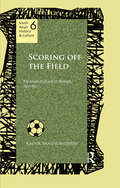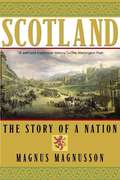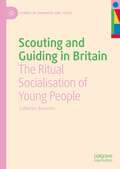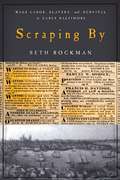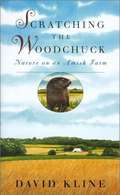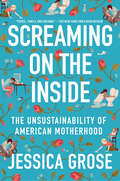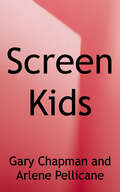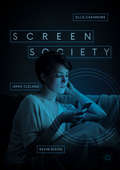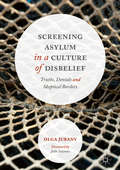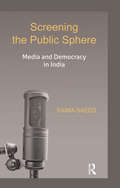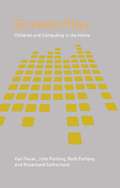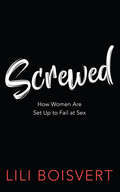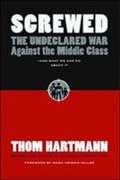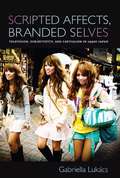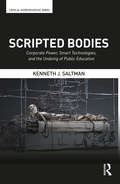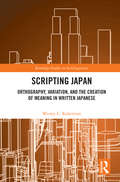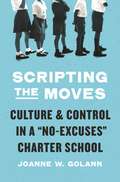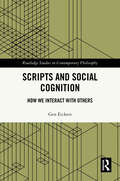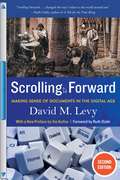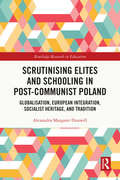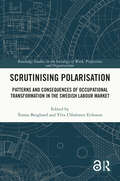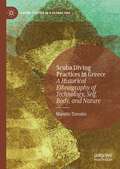- Table View
- List View
Scoring Off the Field: Football Culture in Bengal, 1911–80 (South Asian History And Culture Ser.)
by Kausik BandyopadhyayThis book examines how football, as a mass spectator sport, came to represent a novel, unique cultural identity of Bengali people in terms of nation, community, region/locality and club, contributing to the continuity of everyday socio-cultural life. It explains how football became a viable popular social force with a rare emotional spontaneity and peculiar self-expressive fan culture against the background of anti-imperial nationalist movement and postcolonial political tension and social transformation. In the process, it investigates certain key questions and problems in the social history of football in Bengal, which have hitherto been ignored in the existing works on the subject.The author offers some original arguments in treating football as a cultural phenomenon, setting it squarely in the context of Bengali politics and society. It strengthens the premise that social history of South Asian sport can be meaningfully understood only by looking beyond the sports field. The study, using sport as a lens, has tried to consider some relevant themes of social history, and brings forth important issues of political and cultural history of 20th-century Bengal. Simultaneously, it highlights the transformed role of football as an instrument of reaction, resistance and subversion. It indicates that the football field of Bengal proves to be a mirror image of what society experiences in its cultural and political field, through a series of historical projections of identity, difference and culture.
Scotland: The Story of a Nation
by Magnus MagnussonScotland from antiquity through the end of the Stuart monarchy in Britain (1714) with just a little of Scotland's history during the reign of the Hanoverians, Victoria and during the twentieth century. Well written, scholarly while remaining a easily read enjoyable history.
Scottish Witches and Witch-Hunters
by Julian Goodare"Bringing together twelve studies, this book provides an overview of the key issues of on-going interest in the study of Scottish witchcraft. The authors tackle various aspects of the question of witches; considering how people came to be considered 'witches', with new insights into the centrality of neighbourhood quarrels and misfortune; and delving into folk belief and various acts of witchcraft. It also examines the practice of witch-hunting, the 'urban geography' of witch-hunting, Scotland's international witch-hunting connections and brings fresh insights to the much-studied North Berwick witchcraft panic. Reconstructions of the brutal and ceremonial punishments inflicted on 'witches' offers a gruesome but compelling reminder of the importance of the subject"--
Scouting and Guiding in Britain: The Ritual Socialisation of Young People (Studies in Childhood and Youth)
by Catherine BannisterThis book explores the prevailing role of rites of passage, ritual, and ceremony in contemporary children’s lives through the lens of modern-day incarnations of uniformed youth movements. It focuses on the socialising ritual and customary practices of present-day grass-roots Scout and Guide groups, asking how Britain’s largest and best-known uniformed youth organisations employ ritualised activities to express their values to their young members through language and gesture, story and song, dress, and physical artifacts. The author shows that these practices exist against a backdrop of culturally-constructed beliefs about what constitutes the ‘good child’ and ‘good childhood’ in twenty-first century Britain, with in-movement practices intended to help children develop positively and prepare for social life. The book draws on case study accounts of group performances, incorporating the voices of children and adults reflecting on their practices and experiences.
Scraping By: Wage Labor, Slavery, and Survival in Early Baltimore
by Seth RockmanEnslaved mariners, white seamstresses, Irish dockhands, free black domestic servants, and native-born street sweepers all navigated the low-end labor market in post-Revolutionary Baltimore. Seth Rockman considers this diverse workforce, exploring how race, sex, nativity, and legal status determined the economic opportunities and vulnerabilities of working families in the early republic. In the era of Frederick Douglass, Baltimore's distinctive economy featured many slaves who earned wages and white workers who performed backbreaking labor. By focusing his study on this boomtown, Rockman reassesses the roles of race and region and rewrites the history of class and capitalism in the United States during this time. Rockman describes the material experiences of low-wage workers—how they found work, translated labor into food, fuel, and rent, and navigated underground economies and social welfare systems. He also explores what happened if they failed to find work or lost their jobs. Rockman argues that the American working class emerged from the everyday struggles of these low-wage workers. Their labor was indispensable to the early republic’s market revolution, and it was central to the transformation of the United States into the wealthiest society in the Western world. Rockman’s research includes construction site payrolls, employment advertisements, almshouse records, court petitions, and the nation’s first "living wage" campaign. These rich accounts of day laborers and domestic servants illuminate the history of early republic capitalism and its consequences for working families.
Scratching the Woodchuck: Nature on an Amish Farm
by David Kline"The title of Scratching the Woodchuck comes from an encounter Kline had one summery day near his farm. As he was out walking, he came upon a woodchuck sleeping at the base of an oak tree. In a gesture that speaks eloquently of Kline's relationship with the natural world, he reached over and scratched the animal with his walking stick. Rather than being startled, the sleeping creature arched its back with pleasure at the attention." "Kline's writings ring with reverence, knowledge, and a joyful spirit, and to accompany him as he explores the fields, creeks, and woods around his farm is to share his connection with the earth. In both his writing and his work, he embodies a love of nature and a unity with our fellow creatures while offering a testimony to sustainable farming and living as a true steward of the land."--BOOK JACKET.Title Summary field provided by Blackwell North America, Inc. All Rights Reserved
Screaming on the Inside: The Unsustainability of American Motherhood
by Jessica Grose"If this book feels like it’s sounding the alarm on the state of American motherhood, well, that’s because it is." -- San Francisco ChronicleIn this timely and necessary book, New York Times opinion writer Jessica Grose dismantles two hundred years of unrealistic parenting expectations and empowers today’s mothers to make choices that actually serve themselves, their children, and their communitiesClose your eyes and picture the perfect mother. She is usually blonde and thin. Her roots are never showing and she installed that gleaming kitchen backsplash herself (watch her TikTok for DIY tips). She seamlessly melds work, wellness and home; and during the depths of the pandemic, she also ran remote school and woke up at 5 a.m. to meditate.You may read this and think it’s bananas; you have probably internalized much of it.Journalist Jessica Grose sure had. After she failed to meet every one of her own expectations for her first pregnancy, she devoted her career to revealing how morally bankrupt so many of these ideas and pressures are. Now, in Screaming on the Inside, Grose weaves together her personal journey with scientific, historical, and contemporary reporting to be the voice for American parents she wishes she’d had a decade ago.The truth is that parenting cannot follow a recipe; there’s no foolproof set of rules that will result in a perfectly adjusted child. Every parent has different values, and we will have different ideas about how to pass those values along to our children. What successful parenting has in common, regardless of culture or community, is close observation of the kind of unique humans our children are. In thoughtful and revelatory chapters about pregnancy, identity, work, social media, and the crisis of the Covid-19 pandemic, Grose explains how we got to this moment, why the current state of expectations on mothers is wholly unsustainable, and how we can move towards something better.
Screen Kids: 5 Skills Every Child Needs in a Tech-driven World
by Gary Chapman Arlene Pellicane"Today, children spend more time interacting with screens and less time playing outside or interacting with family. Screen Kids will empower you to make positive changes. This newly revised edition features the latest research and interactive assessments, so you can best confront the issues technology creates in your home." - Provided by Publisher
Screen Society
by Ellis Cashmore Jamie Cleland Kevin DixonScreens have been with us since the eighteenth century, though we became accustomed to staring at them only after the appearance of film and television in the twentieth century. But there was nothing in film or TV that prepared us for the revolution wrought by the combination of screens and the internet. Society has been transformed and this book asks how and with what consequences?Screen Society’s conclusions are based on an original research project conducted by scholars in the UK and Australia. The researchers designed their own research platform and elicited the thoughts and opinions of nearly 2000 participants, to draw together insights of today’s society as seen by users of smartphones, tablets and computers – what the authors call Screenagers. The book issues challenges to accepted wisdom on many of the so-called problems associated with our persistent use of screen devices, including screen addiction, trolling, gaming and gambling.
Screening Asylum in a Culture of Disbelief
by Olga JubanyThis ethnographic book enhances our understanding of asylum screening, an area of immigration that is often overlooked and remains under-researched. Falsely perceived as a one-dimensional function of static state power, it is here revealed that asylum decisions at borders respond to a complex cultural construction, saturated by a meta-message of disbelief, denial and moral panics. The author demonstrates that immigration officers' work patterns, behavior and decisions are informed by such stereotyping, which has led to asylum narratives being interpreted in the light of concepts of social acceptability and rejection. Establishing a parallel with law enforcement, the author argues that this process replicates a professional world of categorization and control, forged within an autonomous immigration service subculture. This timely work will appeal to students and scholars of migration studies, identity and ethnic studies, social anthropology, sociology, law and policy studies. >
Screening Asylum in a Culture of Disbelief: Truths, Denials and Skeptical Borders
by Olga JubanyThis ethnographic book enhances our understanding of asylum screening, an area of immigration that is often overlooked and remains under-researched. Falsely perceived as a one-dimensional function of static state power, it is here revealed that asylum decisions at borders respond to a complex cultural construction, saturated by a meta-message of disbelief, denial and moral panics. The author demonstrates that immigration officers’ work patterns, behavior and decisions are informed by such stereotyping, which has led to asylum narratives being interpreted in the light of concepts of social acceptability and rejection. Establishing a parallel with law enforcement, the author argues that this process replicates a professional world of categorization and control, forged within an autonomous immigration service subculture. This timely work will appeal to students and scholars of migration studies, identity and ethnic studies, social anthropology, sociology, law and policy studies.>
Screening psychischer Arbeitsbelastung: Ein Verfahren zur Gefährdungsbeurteilung
by Anna-Marie Metz Heinz-Jürgen RotheArbeitsbedingte psychische Erkrankungen sind in den letzten 10 Jahren zu den häufigsten Ursachen für Fehlzeiten und Erwerbsminderungsrenten geworden. Im Mittelpunkt des Buches stehen die detaillierte Beschreibung eines psychologischen Verfahrens zur qualitätsgesicherten, effizienten und praktikablen Analyse und Beurteilung psychischer Belastungsfaktoren in Arbeitsprozessen. Aus den Ergebnissen werden Hinweise für bedingungs- und personenbezogene gesundheitsförderliche Maßnahmen abgeleitet. Das Instrument hat sich bei Gefährdungsbeurteilungen in Unternehmen aller Größen und Branchen bewährt, es ermöglicht, Schwachstellen in der Gestaltung von Arbeitssituationen zu identifizieren sowie komplexe Beziehungen zwischen Arbeitsinhalt, Arbeitsbedingungen und deren Folgen wissenschaftlich aufzuklären.
Screening the Public Sphere: Media and Democracy in India
by Saima SaeedFor centuries, democracy and development have steered the imagination of governments, citizens, intelligentsia and policymakers alike. Democracy without free media is a contradiction, while development without democracy is futile. Highlighting the power and significance of contemporary media, this book deconstructs news and news-making on Indian television. In exploring the concepts of ‘sense-making’ and ‘meaning-generation’, it examines how news and the dissemination of information and opinion influence the public sphere, participatory democracy, citizenship and civil society. Providing an original interpretation of the paradigmatic shifts in news content and newsroom practices, this book focuses on changing ownership patterns, increasing ‘entertainmentalization’ of news and the resultant ‘developmental reportage deficit’. At the same time, it confronts the uneasy and critical consequences of commercialization and rising sensationalism in news media. Finally, it discusses the role of Public Service Broadcasting, journalistic ethics, objectivity, and the politics of language and ideology in the media today, pointing to the need for greater diversity of content on the one hand and an emphasis on public interest in media policy-making, on the other. Drawing upon comprehensive empirical data, the democracy–media–development relationship is demonstrated through critical analyses of the media’s coverage of recent news events. This includes exhaustive content examination of news programmes on all major news channels of India, surveys with media experts and news professionals by way of questionnaires, and interviews with the audience to gauge the impact of media content on their understanding of social, political and economic issues. This volume will be especially useful to those in journalism, media and communication studies, as also to students of political science, sociology and economics.
Screenplay: Children and Computing in the Home
by John Furlong Rosamund Sutherland Keri Facer Ruth FurlongWhat are young people really doing on computers at home?Computers feature heavily in the lives of today's young people, and this book sets out to question commonplace assumptions about the use of technology by children at home. Bringing together research from the perspective of psychology, sociology, education and media studies, the authors ask whether we are really witnessing the rise of a new 'digital generation'.Drawing upon the results of their in-depth research project, the authors filter and assess their findings accessibly, offering fascinating reading on:* how computers are used in the home* how parents and children negotiate access to and use of the computer* what role the computer plays in the day to day lives of families.This book makes use of illuminating case studies, and highlights key issues of concern around issues of equality and access in a wider social context. This truly interdisciplinary perspective will be instrumental in reshaping the understanding of teachers, ICT advisors, policy makers and all involved in ICT for children.
Screwed: How Women Are Set Up to Fail at Sex
by Lili BoisvertWhen it comes to sex and desire, women are screwed. In film, on the page, in fashion, and in everyday life, women’s desire is routinely shown as subordinate to men’s — when it isn’t suppressed altogether. Lili Boisvert argues that there is one dominant principle behind heterosexual encounters: that desire is a male phenomenon and women are merely its object. To change this alienating system, she contends, we must start by facing it head-on. From clothing to flirting, from our fascination with youth and innocence to the orgasm gap, every aspect of women’s lives is dictated by their status as sex objects. Is it any wonder that they are feeling sexually unfulfilled? In a series of explorations of what desire looks like under patriarchy, Screwed sketches the contours of what could be true sexual liberation for women, inside — and outside — the bedroom.
Screwed: The Undeclared War Against the Middle Class and What We Can Do About It
by Thom Hartmann(From the book cover) The War Is On: Fight for Your Democratic Birthright The American middle class is on its deathbed. Ordinary folks who put in a solid day's work can no longer afford to buy a house, send their kids to college, or even get sick. If you're not a CEO, you're probably screwed. Air America host Thom Hartmann shows how the American middle class that was so carefully constructed by our country's founding fathers has been systematically dismantled over the past quarter-century, and, under the guise of "freeing" the market, replaced by a system designed to line the pockets of the super-rich and corporations. Hartmann shows that it's not too late to return to the America our founders envisioned. Democracy requires a fair playing field. It will survive only if We the People stand up, speak out, and reclaim our democratic birthright.
Scripted Affects, Branded Selves: Television, Subjectivity, and Capitalism in 1990s Japan
by Gabriella LukácsIn Scripted Affects, Branded Selves, Gabriella Lukcs analyzes the development of a new primetime serial called "trendy drama" as the Japanese television industry's ingenious response to market fragmentation. Much like the HBO hit Sex and the City, trendy dramas feature well-heeled young sophisticates enjoying consumer-oriented lifestyles while managing their unruly love lives. Integrating a political-economic analysis of television production with reception research, Lukcs suggests that the trendy drama marked a shift in the Japanese television industry from offering story-driven entertainment to producing lifestyle-oriented programming. She interprets the new televisual preoccupation with consumer trends not as a sign of the medium's downfall, but as a savvy strategy to appeal to viewers who increasingly demand entertainment that feels more personal than mass-produced fare. After all, what the producers of trendy dramas realized in the late 1980s was that taste and lifestyle were sources of identification that could be manipulated to satisfy mass and niche demands more easily than could conventional marketing criteria such as generation or gender. Lukcs argues that by capitalizing on the semantic fluidity of the notion of lifestyle, commercial television networks were capable of uniting viewers into new affective alliances that, in turn, helped them bury anxieties over changing class relations in the wake of the prolonged economic recession.
Scripted Bodies: Corporate Power, Smart Technologies, and the Undoing of Public Education (Critical Interventions)
by Kenneth J. SaltmanFrom drugging kids into attention and reviving behaviorism to biometric measurements of teaching and learning Scripted Bodies exposes a brave new world of education in the age of repression. Scripted Bodies examines how corporeal control has expanded in education, how it impacts the mind and thinking, and the ways that new technologies are integral to the expansion of control. Scripted Bodies contends that this rise in repression must be understood in relation to the broader economic, political, and cultural forces that have produced an increasingly authoritarian society. This book details how these new forms of corporeal control shut down the possibility of public schools developing as places where thinking becomes the organizing principle needed to contribute to a more equal, just, and democratic society.
Scripting Japan: Orthography, Variation, and the Creation of Meaning in Written Japanese (Routledge Studies in Sociolinguistics)
by Wesley C. RobertsonImagine this book was written in Comic Sans. Would this choice impact your image of me as an author, despite causing no literal change to the content within? Generally, discussions of how language variants influence interpretation of language acts/users have focused on variation in speech. But it is important to remember that specific ways of representing a language are also often perceived as linked to specific social actors. Nowhere is this fact more relevant than in written Japanese, where a complex history has created a situation where authors can represent any sentence element in three distinct scripts. This monograph provides the first investigation into the ways Japanese authors and their readers engage with this potential for script variation as a social language practice, looking at how purely script-based language choices reflect social ideologies, become linked to language users, and influence the total meaning created by language acts. Throughout the text, analysis of data from multiple studies examines how Japanese language users' experiences with the script variation all around them influence how they engage with, produce, and understand both orthographic variation and major social divides, ultimately evidencing that even the avoidance of variation can become a socially significant act in Japan.
Scripting the Moves: Culture and Control in a "No-Excuses" Charter School
by Joanne W. GolannAn inside look at a "no-excuses" charter school that reveals this educational model’s strengths and weaknesses, and how its approach shapes studentsSilent, single-file lines. Detention for putting a head on a desk. Rules for how to dress, how to applaud, how to complete homework. Walk into some of the most acclaimed urban schools today and you will find similar recipes of behavior, designed to support student achievement. But what do these “scripts” accomplish? Immersing readers inside a “no-excuses” charter school, Scripting the Moves offers a telling window into an expanding model of urban education reform. Through interviews with students, teachers, administrators, and parents, and analysis of documents and data, Joanne Golann reveals that such schools actually dictate too rigid a level of social control for both teachers and their predominantly low-income Black and Latino students. Despite good intentions, scripts constrain the development of important interactional skills and reproduce some of the very inequities they mean to disrupt.Golann presents a fascinating, sometimes painful, account of how no-excuses schools use scripts to regulate students and teachers. She shows why scripts were adopted, what purposes they serve, and where they fall short. What emerges is a complicated story of the benefits of scripts, but also their limitations, in cultivating the tools students need to navigate college and other complex social institutions—tools such as flexibility, initiative, and ease with adults. Contrasting scripts with tools, Golann raises essential questions about what constitutes cultural capital—and how this capital might be effectively taught.Illuminating and accessible, Scripting the Moves delves into the troubling realities behind current education reform and reenvisions what it takes to prepare students for long-term success.
Scripts and Social Cognition: How We Interact with Others (Routledge Studies in Contemporary Philosophy)
by Gen EickersThis book argues that our success in navigating the social world depends heavily on scripts. Scripts play a central role in our ability to understand social interactions shaped by different contextual factors.In philosophy of social cognition, scholars have asked what mechanisms we employ when interacting with other people or when cognizing about other people. Recent approaches acknowledge that social cognition and interaction depend heavily on contextual, cultural, and social factors that contribute to the way individuals make sense of the social interactions they take part in. This book offers the first integrative account of scripts in social cognition and interaction. It argues that we need to make contextual factors and social identity central when trying to explain how social interaction works, and that this is possible via scripts. Additionally, scripts can help us understand bias and injustice in social interaction. The author’s approach combines several different areas of philosophy – philosophy of mind, social epistemology, feminist philosophy – as well as sociology and psychology to show why paying attention to injustice in interaction is much needed in social cognition research, and in philosophy of mind more generally.Scripts and Social Cognition: How We Interact with Others will appeal to scholars and graduate students working in philosophy of mind, philosophy of psychology, social epistemology, social ontology, sociology, and social psychology.
Scrolling Forward, Second Edition: Making Sense of Documents in the Digital Age
by David M. Levy Ruth OzekiA fascinating, insightful, and wonderfully written exploration of the document.Like Henry Petroski’s The Pencil, David Levy’s Scrolling Forward takes a common, everyday object, the document, and illuminates what it reveals about us, both in the past and in the digital age.We are surrounded daily by documents of all kinds-letters and credit card receipts, business memos and books, television images and web pages-yet we rarely stop to reflect on their significance. Now, in this period of digital transition, our written forms as well as our reading and writing habits are being disturbed and transformed by new technologies and practices.An expert on information and written forms, and a former researcher for the document pioneer Xerox, Levy masterfully navigates these concerns, offering reassurance while sharing his own excitement about many of the new kinds of emerging documents. He demonstrates how today’s technologies, particularly the personal computer and the World Wide Web, are having analogous effects to past inventions-such as paper, the printing press, writing implements, and typewriters-in shaping how we use documents and the forms those documents take. Scrolling Forward lets us see the continuity between the written forms of today and those of the past.Skyhorse Publishing, as well as our Arcade imprint, are proud to publish a broad range of books for readers interested in history--books about World War II, the Third Reich, Hitler and his henchmen, the JFK assassination, conspiracies, the American Civil War, the American Revolution, gladiators, Vikings, ancient Rome, medieval times, the old West, and much more. While not every title we publish becomes a New York Times bestseller or a national bestseller, we are committed to books on subjects that are sometimes overlooked and to authors whose work might not otherwise find a home.
Scrutinising Elites and Schooling in Post-Communist Poland: Globalisation, European Integration, Socialist Heritage, and Tradition (Routledge Research in Education)
by Alexandra Margaret DunwillThis book offers new insights and methodological tools to improve our understandings of how prestigious schools in Poland navigate the major political, social and cultural crosscurrents. The range of choice for elite schooling in Poland has expanded during its post-communist transformation. However, while elite education in countries such as the US, Australia, UK, France, and Switzerland has been extensively studied, post-communist countries have been largely neglected. This book explores the emergence of such schools within a context influenced by a range of different and often conflicting social forces. In doing so, the study elucidates how the socio-historical processes since 1989 diversified Poland’s egalitarian education system and facilitated the emergence of schools for elites. The book demonstrates that social and political changes in Poland triggered the emergence of new elites with different political and social outlooks, leading to a variety of types of elite schools that reflect and reproduce the elites’ positions and idiosyncrasies. A bespoke theoretical arrangement scrutinises extant and generated data from elite schools’ websites, online readers’ forums, and interviews with elite school principals. The book contributes new insights into elite schools in Central and Eastern European (CEE) countries, enriching the existing body of knowledge on elites and elite schools around the world. It will be of interest to researchers and postgraduate students investigating elite education, sociology of education, education policy, and education and international development.
Scrutinising Polarisation: Patterns and Consequences of Occupational Transformation in the Swedish Labour Market (Routledge Studies in the Sociology of Work, Professions and Organisations)
by Tomas Berglund Ylva Ulfsdotter ErikssonThis book scrutinises polarisation in Sweden, identifying patterns and variations in labour market transformation and exploring the consequences in terms of jobs, income, prestige, unionization and employment security, as well as the effects on different social groups. Through a series of empirical studies, it sheds light on changes in the occupational structure and the ways in which these changes interact with other societal trends, such as increased temporary employment, rising migration and decreased unionization, whilst also exploring changes in the evaluation of occupations and attitudes towards trade unions. Drawing on distinctly sociological perspectives, it shows how transformations in society and the labour market have affected conditions for individuals and considers whether these changes reinforce existing inequalities occasioned by polarisation or create new ones. Scrutinising Polarisation considers whether and how the Swedish labour market has polarized – and, if so, what this means for individual employees and labour organizations. It will therefore appeal to scholars with interests in the sociology of work and professions, social inequalities and labour market transformations.
Scuba Diving Practices in Greece: A Historical Ethnography of Technology, Self, Body, and Nature (Leisure Studies in a Global Era)
by Manolis TzanakisThis book provides a historical-sociological analysis of recreational scuba diving practices. Starting from a national case study, Greece, the book analyzes the gradually evolving global institutional arrangements of this version of underwater recreational activities. Based on the author’s experience as a former diving instructor and on an historical and sociological research of scuba diving in Greece, the book examines the stages of institutionalization of scuba diving as a leisure practice on a global scale, from 1945 to the present day. It combines two traditions: the phenomenological approach of underwater multisensory embodied experience and tourism studies. The two main research questions that the project answers are (a) how scuba diving has historically been shaped as a leisure activity, (b) how has underwater experience been conceptually shaped as a leisure activity. This case is an excellent example for exploring the relationship between society, technology, body and modern practices of self in the late modernity world, under a phenomenological and historical perspective.
